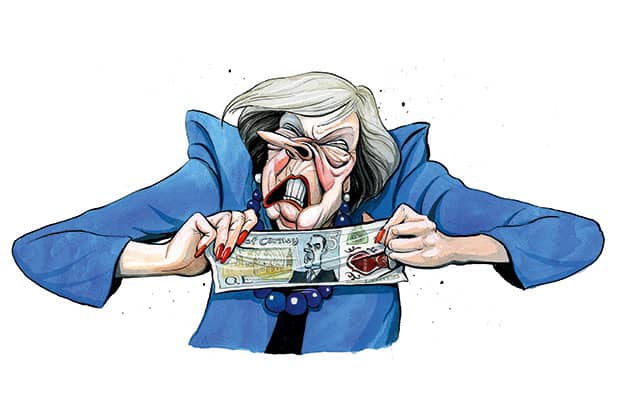Should MPs be allowed second jobs? In the wake of last year’s Owen Paterson scandal, in which it was revealed the Tory MP had breached lobbying rules, there was a clamour to clamp down on Parliamentarians’ outside income. The Commons Standards Committee toyed with the idea of placing some restriction on the time MPs could spend on extra-Parliamentary employment, or on the amounts they earned from it. But now the Committee has decided against taking action. Voters will be unhappy, but this is a decision that should be welcomed.
Why? Because outside work by politicians is not a distraction to be avoided, as some more puritanical MPs have it. More often it’s something that usefully informs debate and Committee work. MPs can also hardly be expected to abandon businesses or law practices in exchange for a precarious life in Parliament. And in any case, if people are concerned about indolence or outside distractions, there seems no reason why the ballot-box should not be a perfectly adequate remedy for getting rid of errant MPs.
The Committee is also right to reject another idea it had floated last year. That was to add to the seven ‘Nolan principles’ of public life, which already bind Members, with a further abstract requirement for them to act with ‘respect’.
Outside work by politicians is not a distraction to be avoided, as some more puritanical MPs have it
At first, this sounds innocuous, yet this vague prescription would have opened a Pandora’s box. It would, according to the original proposals put forward by the Committee, have required MPs to ‘demonstrate anti-discriminatory attitudes and behaviours through the promotion of anti-racism, inclusion and diversity’, and potentially left them open to sanctions if they were seen to deny these values. Such a rule would have worryingly constrained MPs, and made it difficult for them either to promote the policies they thought best, or properly to represent constituents’ concerns.
Imagine, for example, an MP who disagreed that the UK was structurally racist, argued that racism should be countered by robust colour-blindness, and denounced diversity and inclusion initiatives as a waste of time. Such views are fair enough, popular in many working-class constituencies, and indeed follow the requirements of existing equality law. To make MPs expressing them even potentially subject to being reported by pressure groups – and then facing disciplinary sanctions from an unelected Commons official – would be unacceptable. It is welcome news that the Committee has seen sense.
More worrying, however, is the Committee’s approach to another suggestion from last year, which could have prohibited MPs from subjecting anyone, anywhere, to ‘unreasonable and excessive personal attack’ in any medium at all, and subjected them to disciplinary measures if they did. These proposals were aimed fairly explicitly at curbing what were seen as provocative pronouncements by MPs on social media, seen by some as condoning hatred and violence. But they went much further: they could catch, for example, strongly-worded pieces published in the press, or in messages to constituents.
As was quickly pointed out, making this a matter for official sanction rather than electoral decision, as it is at present, amounted to a fairly staggering attack on free speech. It would also, ironically, have meant MPs were less free to speak their mind than the rest of us.
Unfortunately, on this the Standards Committee is like some determined parliamentary terrier; having picked up this bone, it is loath to let go of it. True, it is not taking forward the ‘personal attack’ provision at this stage. But its members remain convinced of the need for official sanctions for comments outside Parliament that are seen as ‘genuinely shocking and beyond what would normally be considered reasonable behaviour.’
Slightly ominously, the report refers to a ‘wider inquiry’ they plan to hold this year into ‘the tone of political debate, intimidation, misogyny and how parties conduct their campaigning.’ The message to MPs is clear: you have been warned. It seems that we have not heard the last of plans to dictate the course of political debate by administrative fiat.
This shouldn’t come as much of a surprise. Organisations set up to dictate standards attract the earnest and the censorious. The Standards Committee is no exception, composed as it is of equal numbers of predominantly puritanical Parliamentarians, and ‘lay members’ who can at times be even more dour than the MPs. Four of them appended a supplementary report of their own, in which they lauded the idea of requiring MPs to promote anti-racism, anti-misogynistic attitudes, inclusion, and diversity, and castigated the Committee’s pusillanimity in not pressing forward with that idea.
If MPs need watching closely, so too, it seems, does the Commons Standards Committee itself: MPs need to be forcefully reminded that they, rather than the watchdog, have the last word on Parliamentary standards.






Comments